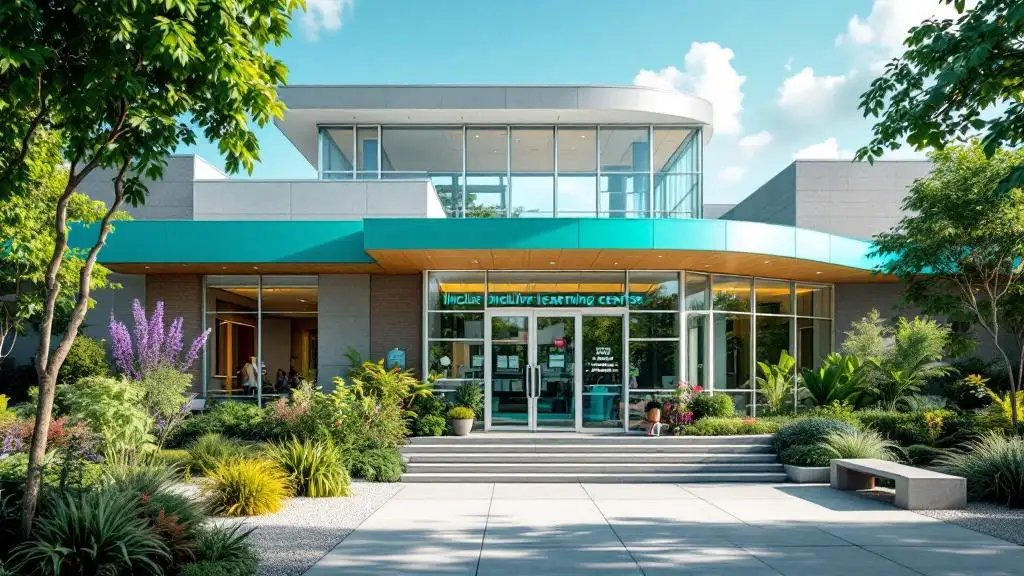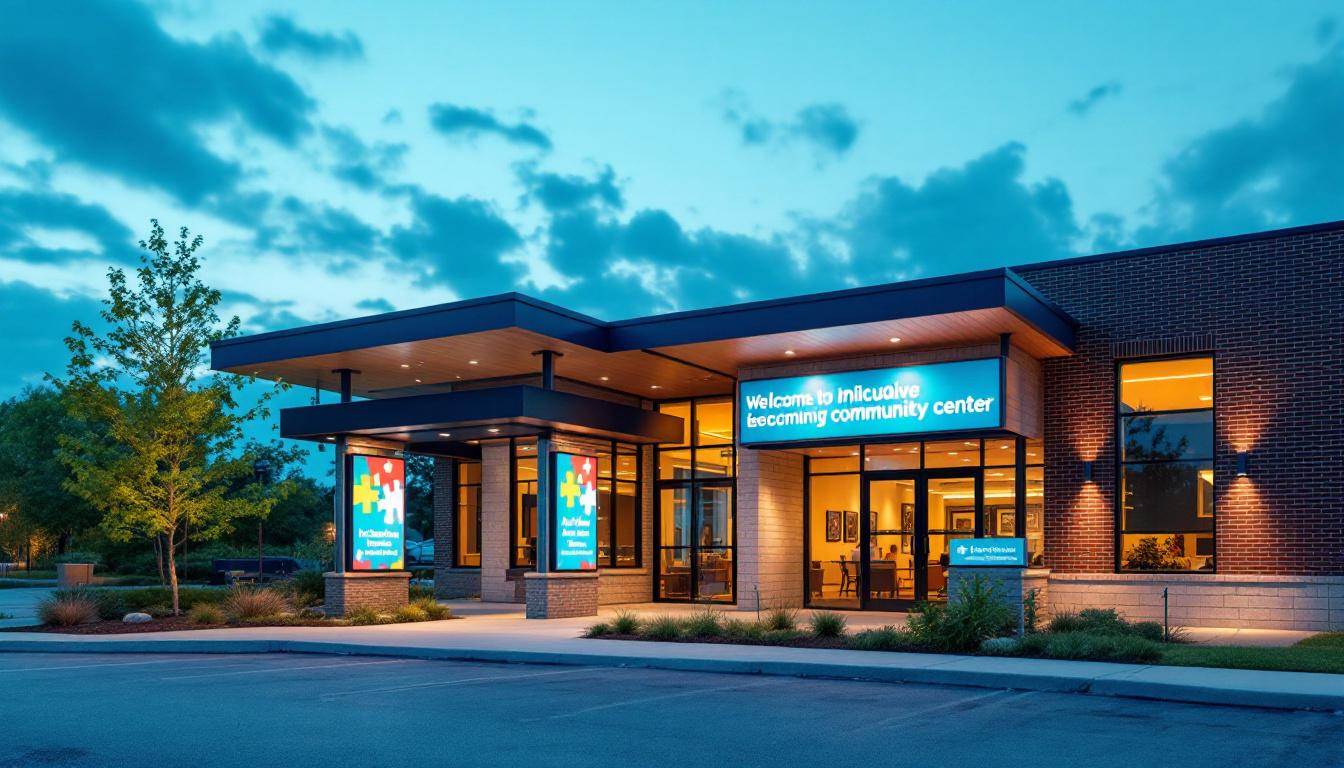Is Arizona A Good State For Autism?

Evaluating Arizona’s Environment for Individuals with Autism
Arizona has garnered recognition as a leading state for autism services, supported by comprehensive programs, legislative initiatives, and community efforts. This article explores the various aspects that make Arizona a compelling environment for autistic individuals and their families, delving into prevalence rates, available resources, policies, and community inclusivity.
Prevalence of Autism in Arizona and Nationwide
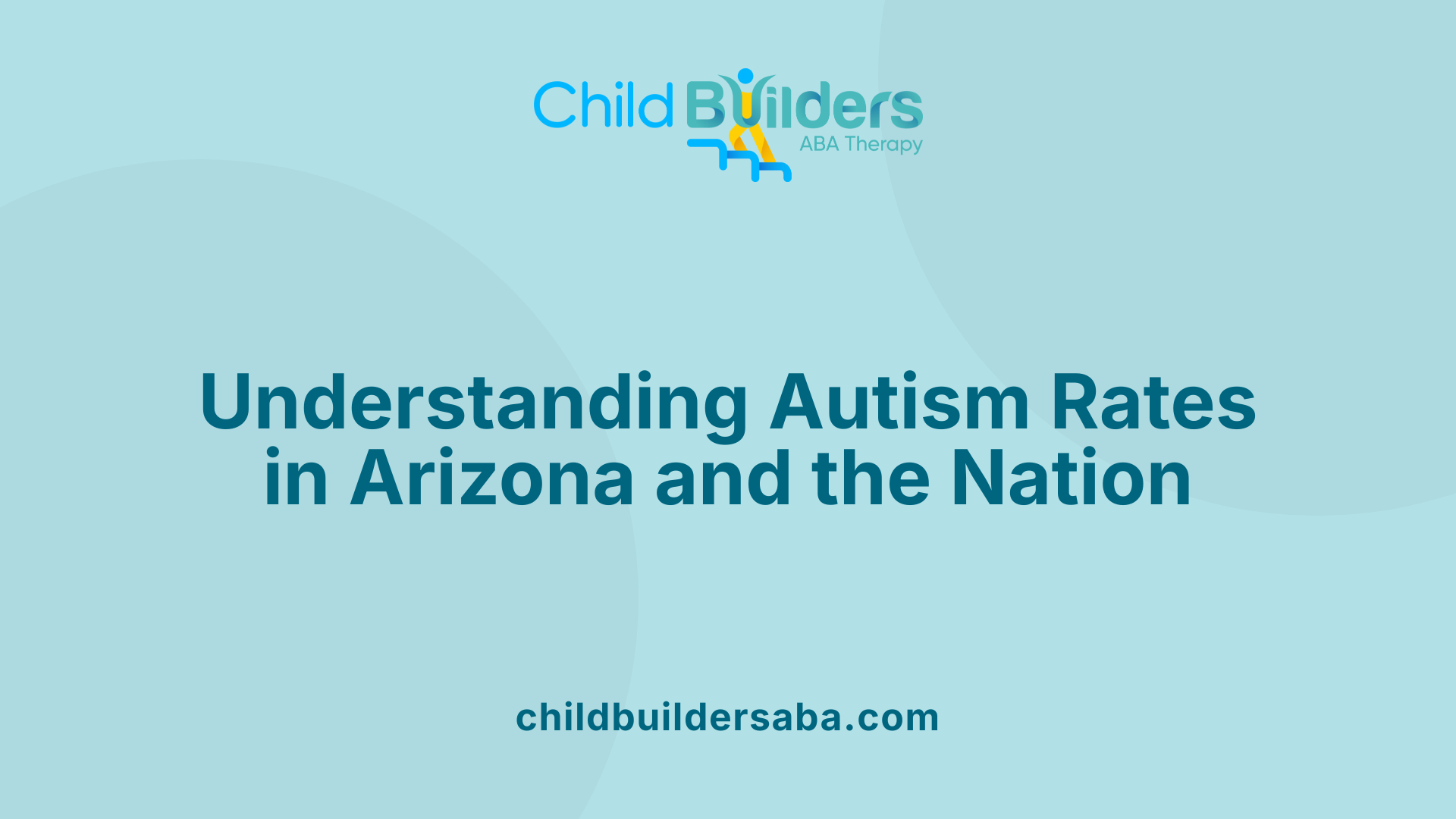 In 2018, the prevalence of Autism Spectrum Disorder (ASD) among children in Maricopa County, Arizona, was estimated at 1 in 54, which is slightly higher than the national average of 1 in 59. These figures highlight the growing recognition and diagnosis of autism both within Arizona and across the United States.
In 2018, the prevalence of Autism Spectrum Disorder (ASD) among children in Maricopa County, Arizona, was estimated at 1 in 54, which is slightly higher than the national average of 1 in 59. These figures highlight the growing recognition and diagnosis of autism both within Arizona and across the United States.
According to the Centers for Disease Control and Prevention (CDC), approximately 1 in 54 children nationwide have been diagnosed with autism, a rate that has increased significantly over the past two decades. This rise is partly attributed to increased awareness, improved diagnostic practices, and broader screening efforts.
When comparing Arizona to other states, Arizona has been recognized as the best state for autism services, according to a 2015 WalletHub analysis. The state offers extensive resources such as early intervention programs, behavioral therapies including applied behavior analysis (ABA), and insurance reforms that mandate coverage for autism treatments.
The Autism Developmental Disabilities Surveillance Program also notes that around 1 in 36 children in Arizona (about 2.7%) are on the autism spectrum, a slightly higher rate than the CDC's estimate. This discrepancy reflects differences in data collection methods but underscores the importance of comprehensive support services.
Overall, autism prevalence in Arizona mirrors national trends—an increase driven by greater awareness and better diagnostic criteria. The state's proactive approach, including insurance reforms and specialized community programs, aims to improve outcomes for children and families affected by autism.
| Prevalence Rate | State/Country | Notes |
|---|---|---|
| 1 in 54 | Maricopa County, AZ | Higher than national average |
| 1 in 59 | Arizona (statewide) | Similar to CDC figures |
| 1 in 54 | United States | CDC estimate, 2022 |
| 1 in 36 | Arizona (per ADDS) | Slightly higher, includes broader data |
| 1 in 31 | United States | Recent CDC estimate |
Understanding these statistics helps to recognize the importance of accessible services, early diagnosis, and community support for individuals on the spectrum.
Arizona’s Recognition as a Leading State for Autism Support
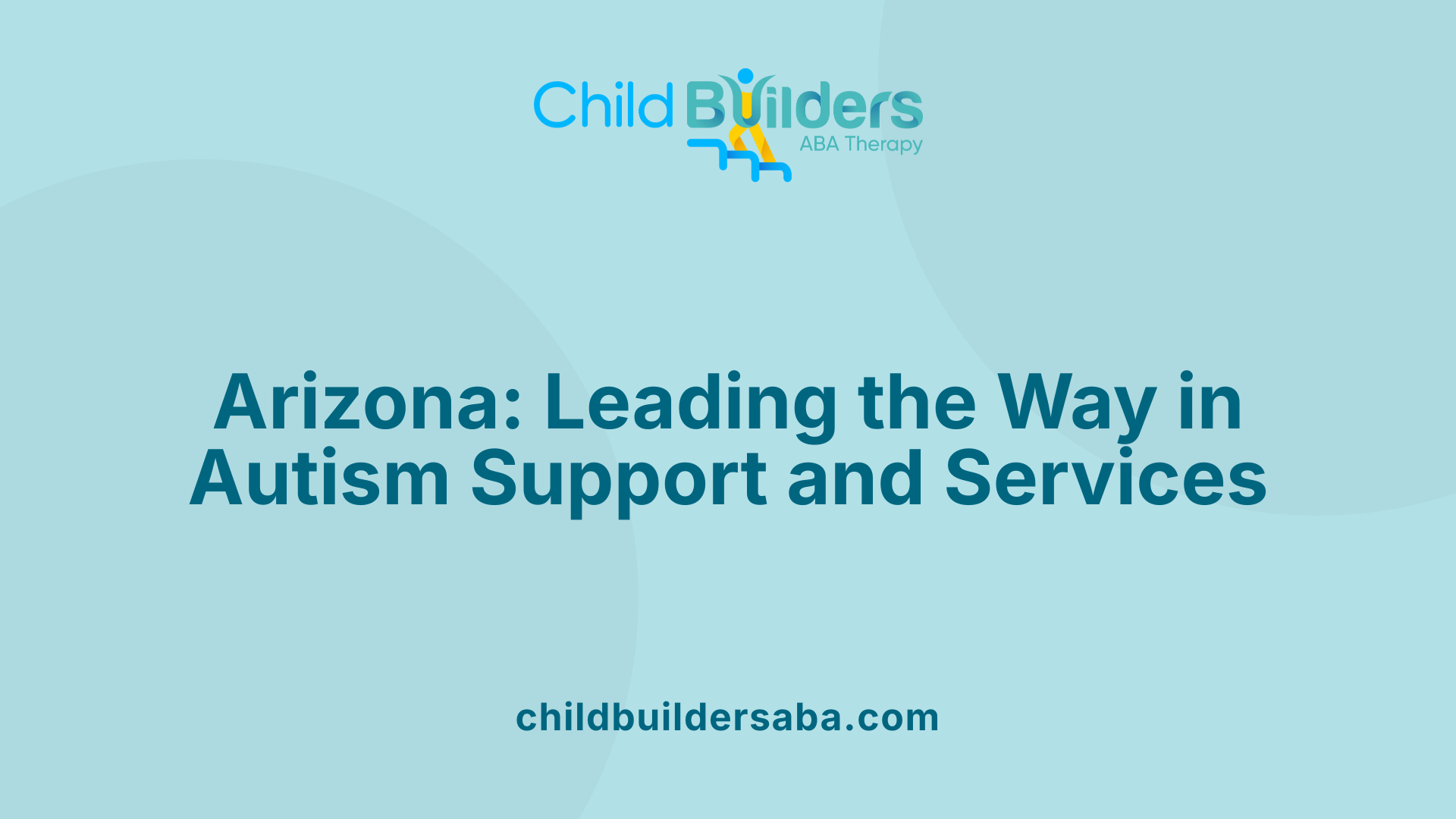 Arizona has established itself as a prominent supporter of individuals with autism spectrum disorder (ASD), earning top rankings within the United States. In 2015, WalletHub ranked Arizona as the best state for autism services, considering factors such as access to specialists, educational support, and availability of clinical resources.
Arizona has established itself as a prominent supporter of individuals with autism spectrum disorder (ASD), earning top rankings within the United States. In 2015, WalletHub ranked Arizona as the best state for autism services, considering factors such as access to specialists, educational support, and availability of clinical resources.
The state exhibits higher-than-average prevalence rates—about 1 in 54 children diagnosed with ASD as per the CDC and Arizona-specific surveillance data indicating approximately 2.7%, or 1 in 36 children. The average age of diagnosis in Arizona is around 4 years, later than the national average of 3 years, emphasizing the importance of ongoing early intervention efforts.
Arizona’s comprehensive approach combines policy initiatives, clinical services, and community programs. Since 2008, the state has enforced autism insurance reform laws, culminating in full compliance in 2019, which mandates coverage for autism therapies, notably applied behavior analysis (ABA). Insurance plans are required to provide at least 25 hours of ABA therapy weekly for children under 18, with annual limits up to $50,000. Medicaid extends this support further, covering up to 40 hours of ABA therapy weekly and including speech and occupational therapy for eligible children.
Beyond insurance, Arizona offers a variety of therapies and programs beneficial to autistic individuals. Evidence-based interventions include ABA, speech-language therapy, and social skills training. Educational models like TEACCH adapt learning environments with visual cues, while DIR/Floor Time promotes emotional and social development. The Department of Economic Security (DES) facilitates vocational rehabilitation programs that successfully support employment opportunities.
Community initiatives play a vital role, with resources such as specialized schools and organizations like the Autism Society of Greater Phoenix providing education, support, and social activities. Notably, Mesa, Arizona, has earned distinction as the country’s first Autism Certified City, with inclusive attractions and businesses recognized for their accessibility, enhancing community participation.
Arizona’s dual focus on policy and community resources positions it at the forefront of autism support, aiding individuals and families in achieving better quality of life through tailored therapies, comprehensive services, and inclusive community environments.
| Aspect | Description | Additional Details |
|---|---|---|
| Autism prevalence | 1 in 54 children (CDC) | Higher than national average of 1 in 59 |
| Age at diagnosis | ~4 years | Slightly later than national average of 3 years |
| Insurance coverage | Mandated since 2008, full compliance in 2019 | Includes ABA and related therapies |
| Therapy services | ABA, speech, occupational | Medicaid covers extensive hours |
| Community support | Specialized schools, Autism Society, Mesa’s certification | Promotes inclusion and awareness |
| Recognition | Top ranked in autism services (WalletHub, 2015) | Based on specialists, access, and programs |
Available Autism Services and Therapeutic Resources in Arizona
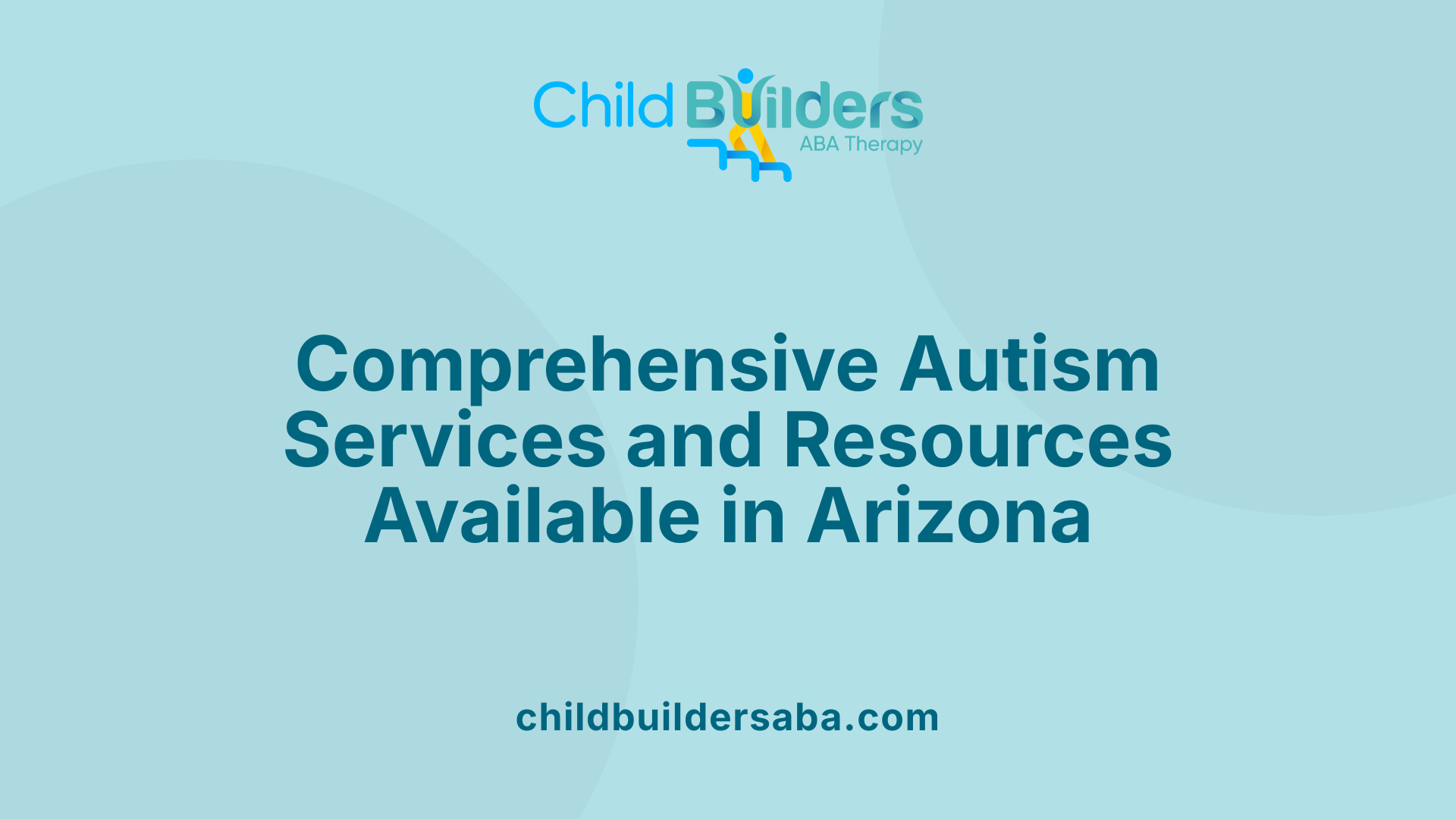
What early intervention programs are available for autistic children in Arizona?
Arizona provides a variety of early intervention programs designed to support children diagnosed with autism at the earliest possible stage. These programs focus on developmental assessments, behavioral therapies, and parent training to ensure young children receive the support they need during critical growth periods. The Arizona Department of Economic Security (DES) offers vocational rehabilitation programs aimed at young individuals to help them prepare for employment. Additionally, early screening and diagnosis services are crucial, although the average age of diagnosis in Arizona is around 4 years, slightly later than the national average of 3 years.
What educational support options exist for children with autism?
Arizona has specialized schools and educational programs that cater specifically to students with autism. These programs often incorporate structured teaching strategies like applied behavior analysis (ABA), social skills training, and inclusive classroom environments. Regional centers and community organizations, such as the Autism Society of Greater Phoenix, offer resources including social events, support groups, and educational workshops for families and educators. These initiatives aim to create inclusive learning environments and provide tailored support for academic and social success.
What therapeutic services are offered for individuals with autism in Arizona?
Therapy is a core component of autism support, and Arizona offers a comprehensive array of services including speech therapy, occupational therapy, and behavioral interventions like ABA. The state mandates insurance coverage for autism treatment, requiring health plans to cover a minimum of 25 hours of ABA therapy per week for children under 18, with annual limits up to $50,000. Medicaid expands these services further, providing up to 40 hours of ABA therapy weekly for children under 21, along with occupational and speech therapies. These services are essential in improving communication, behavioral regulation, and daily living skills.
Resources and support systems for autistic individuals?
Support for individuals with autism in Arizona extends beyond therapy and education. The state offers vocational rehabilitation programs through the Department of Economic Security, helping autistic individuals gain employment and independence. Community organizations, such as the Autism Society of Greater Phoenix, provide social opportunities, advocacy, and resource referrals. Moreover, initiatives like Mesa’s status as the first Autism Certified City and its inclusive travel guide demonstrate a community-wide commitment to accessibility and acceptance. These amenities help improve quality of life and encourage community participation for those on the spectrum.
| Service Type | Description | Additional Details |
|---|---|---|
| Early intervention programs | Support for young children through assessments and therapy | Focus on developmental milestones |
| Educational support options | Specialized schools and inclusive classroom practices | Community-based programs available |
| Therapeutic services | Speech, occupational, behavioral therapies like ABA | Medicaid and insurance coverage support |
| Community support | Organizations, community events, vocational assistance | Mesa’s Autism Certified City initiative |
More Information
Families seeking autism services and programs in Arizona can access detailed directories and guides to locate appropriate resources. These resources are vital in creating supportive environments that foster development, independence, and community engagement for autistic individuals.
Legislation and Policy Initiatives Supporting Autism in Arizona
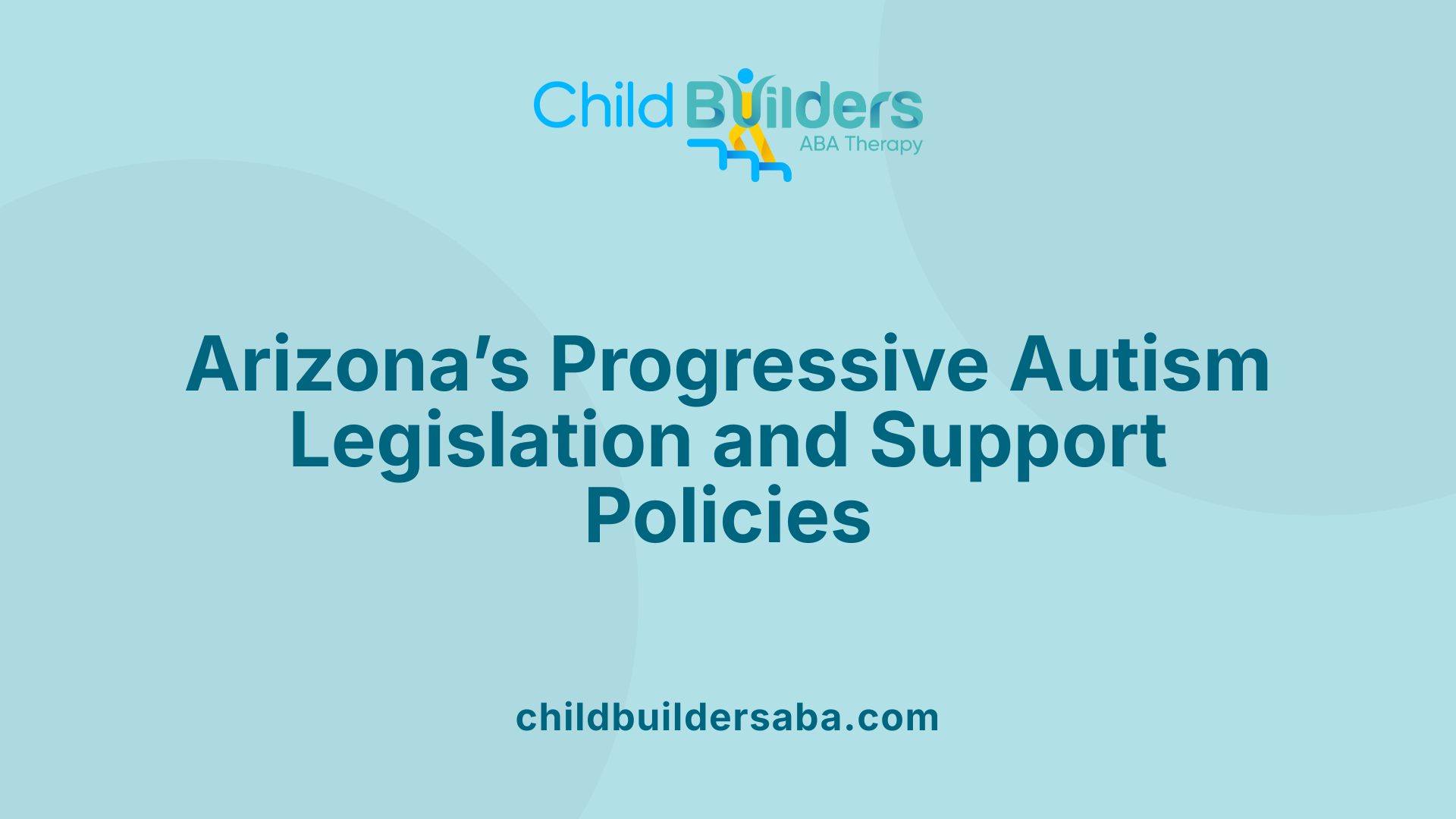 Arizona has established a strong infrastructure to support individuals with autism through specific laws and programs that promote access to vital services.
Arizona has established a strong infrastructure to support individuals with autism through specific laws and programs that promote access to vital services.
One significant development is the Autism Insurance Reform Law, enacted to ensure health insurance plans cover autism diagnosis and treatment. This legislation mandates insurance companies to provide at least 25 hours of applied behavior analysis (ABA) therapy weekly for children under 18, with a maximum annual benefit of $50,000. Since its implementation, Arizona has reached full compliance with federal mandates requiring such coverage, making therapies more accessible and affordable for families.
State Medicaid programs further enhance support by offering coverage for up to 40 hours of ABA therapy weekly for children under 21. Additionally, Medicaid in Arizona includes occupational and speech therapies, which are essential for many children with autism.
Beyond insurance reforms, Arizona supports education and employment initiatives. The Department of Economic Security manages vocational rehabilitation programs that help individuals with autism gain employment, with numerous success stories demonstrating positive outcomes.
Arizona's comprehensive approach is supplemented by community-based resources, including specialized schools, community organizations, and inclusive programs like those in Mesa, recognized as the country’s first Autism Certified City. These efforts aim to foster an inclusive environment where individuals with autism can thrive.
For more information on the latest autism policies and programs in Arizona, searching "Autism legislation and policies in Arizona" provides additional insights into ongoing initiatives and legislative updates.
| Policy/Program | Coverage/Support Details | Additional Notes |
|---|---|---|
| Autism Insurance Reform Law | Mandates health insurance to cover at least 25 hours of ABA therapy weekly; up to $50,000/year | Implemented in Arizona to improve access to autism treatments |
| Medicaid Coverage | Up to 40 hours of ABA therapy weekly for children under 21, plus speech and occupational therapies | Critical support for families and children |
| Vocational Rehabilitation | Support for employment opportunities and job training | Managed by the Department of Economic Security |
| Community Resources | Specialized schools, Autism Certified City initiatives, inclusive travel and activities | Enhances community engagement and social inclusion |
Community Initiatives Promoting Autism Awareness and Inclusivity in Arizona
How can communities promote autism awareness and inclusivity?
Communities play a vital role in fostering understanding and acceptance of individuals with autism. One effective way is through awareness campaigns, such as Autism Acceptance Month, which aim to educate the public and reduce stigma. These campaigns often feature events like community walks, sensory-friendly gatherings, and art projects that highlight autism strengths and promote empathy.
Beyond awareness, inclusive programs are essential. Community-supported activities such as adaptive sports, art classes, and social stories enable autistic individuals to participate actively and confidently. These initiatives not only provide opportunities for social interaction but also help build a supportive environment.
Support networks and groups for families impact real change by offering resources, social connection, and advocacy. Training programs for teachers, employers, and local residents promote understanding, promote proper accommodations, and foster a culture of acceptance.
Advocacy is also crucial. Community-led efforts at local and state levels influence policies that expand access to services, employment, and rights for autistic individuals. Celebrating differences and providing accessible resources fosters an inclusive atmosphere where all community members can thrive.
In Arizona, these community-driven actions help bridge gaps, challenge misconceptions, and build a welcoming environment for autistic individuals and their families.
Quality of Life Factors for Autistic Individuals in Arizona
What factors contribute to the overall quality of life for autistic individuals?
Various elements influence how positively autistic individuals experience their daily lives in Arizona. Access to comprehensive services like early intervention programs, therapeutic supports such as speech and occupational therapy, and specialized educational options play a significant role. Arizona is recognized for its robust autism services, which include insurance reforms mandating coverage for therapies like applied behavior analysis (ABA).
Beyond services, social and community inclusion are vital. Communities like Mesa, the country’s first Autism Certified City, exemplify efforts to create accessible environments. Initiatives such as the Autism Society of Greater Phoenix provide social support and facilitate community engagement, reducing feelings of isolation.
Employment opportunities are another crucial factor. Programs offered by the Department of Economic Security (DES) focus on vocational rehabilitation, helping autistic individuals find meaningful jobs. Success stories from these programs illustrate that with adequate support, many can achieve fulfilling careers.
Health and mental well-being are equally important. Challenges such as anxiety, depression, and sensory processing issues are common. Ensuring early diagnosis, access to mental health resources, and training for families and caregivers contributes to healthier outcomes. The ability to develop coping strategies or utilize accommodations increases independence and life satisfaction.
Overall, improving quality of life for autistic individuals in Arizona depends on a multifaceted approach: expanding access to supportive services, fostering inclusive communities, promoting employment, and addressing mental health needs. Societal acceptance and tailored support recognizing individual strengths further enhance well-being and longevity.
Arizona’s Commitment to Autism Support and Inclusion
Arizona stands out as a leading state for autism support, driven by comprehensive legislation, abundant resources, and community initiatives that foster inclusivity and understanding. With higher prevalence awareness, targeted support services, and innovative community programs like those in Mesa—recognized as the first Autism Certified City—the state continues to make significant strides toward improving the lives of autistic individuals. Continued investment in research, policy, and community education will be vital in maintaining and expanding these efforts. Arizona’s proactive approach demonstrates its commitment to creating an environment where autistic citizens can thrive, be supported, and fully participate in society.
References
- Is Arizona A Good State For Autism? - Astra ABA
- Is Arizona A Good State For Autism? - ABATherapistJobs.com
- Autism Benefits by State 2025 - World Population Review
- Autism Travel - Visit Mesa
- Treatment and Intervention for Autism Spectrum Disorder - CDC
- What are the treatments for autism? | NICHD
- Autism Therapy Types & Interventions - Cleveland Clinic
- Autism therapy and intervention
- State Resources for Autism | IACC
- Autism Resources - Florida Department of Health


































